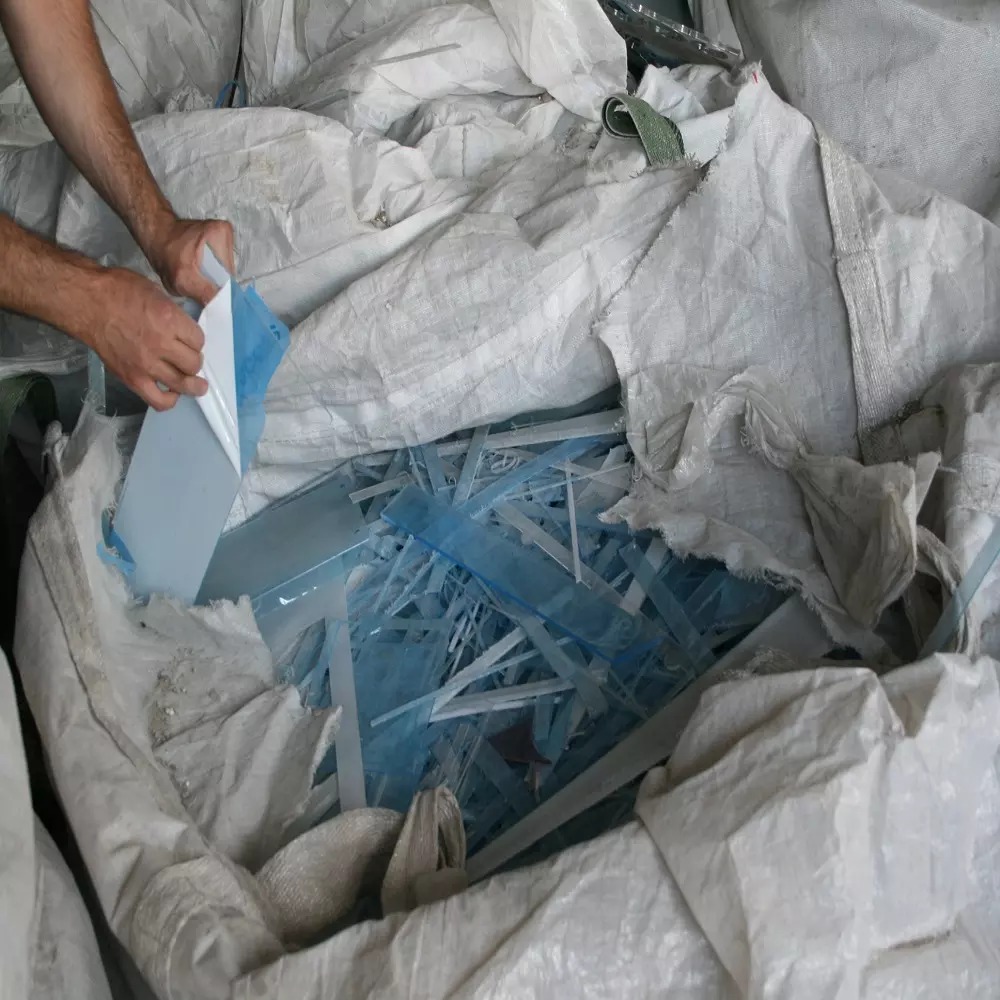Suppliers of pmma
Suppliers of Acrylic Sheet Scrap Regrind (PMMA)
Polymethyl methacrylate is a thermoplasticpolymer. PMMA is widely used for its strong mix of properties, including exceptional optical clarity, surface hardness, weatherability and dimensional stability.
Acrylic Sheet Scrap Regrind (PMMA) For Sale. Polymethyl Methacrylate (PMMA) Acrylic Sheet Scrap Regrind PMMA polymer exhibits glass-like qualities – clarity, brilliance, transparency, translucence – at half the weight with up to 10 times the impact resistance. It is more robust and have less risk of damage.
Injection Molding
· Melt temperature : 200-250°C
· Mold temperature : 40-80°C
· High injection pressures are needed because of poor flow properties and it may be necessary to inject slowly to get the correct flow.
· Internal stresses can be eliminated by heating at 80°C.
Extrusion
· Extrusion temperature : 180-250°C
· A degassing screw with an L/D ratio of 20-30 is recommended
SPECIFICATIONS PMMA SCRAP:
| Materials | Polymethyl Methacrylate (PMMA) |
| Color | Natural and Mix Color. |
| Application | glass roofing, façade design, advertising, automotive headlamps,… |
| Grade | optical grade and general purpose grade s. |
| Type | Post Industrial Waste. |
| Quality | Clean and less than 1% shortage |
| Form | Regrind |
- As the biggest manufacturing company of cast acrylic sheet in Turkey, we have acrylic scraps, offcuts for exporting.
- Acrylic scraps cut down from Acrylic sheet made of 100% Virgin MMA
- Acrylic scraps without masking paper, PE cover film or PVC gasket, the best solution for recycled industry.
What is PMMA used for?
Poly(methyl methacrylate), or PMMA, is known by many different names, including Plexiglas and acrylic. The biocompatibility of PMMA material has gained it the medical moniker of “bone cement.” PMMA is often used as a lighter, shatter-resistant alternative to glass in everything from windows, aquariums and hockey rinks.
Is PMMA plastic toxic?
Acrylic, Poly Methyl Methacrylate (PMMA) based polymers are found in many industrial, professional and consumer products and are of low toxicity, but do contain very low levels of residual monomers and process chemicals that can leach out during handling and use.
Acrylics (Polymethyl-Methacrylate or PMMA)
Acrylics is an amorphous thermoplastic which is optically transparent, unaffected by moisture, and offers a high strength-to-weight ratio. Common trade names of acrylic include Plexiglas ®, Lucite ®, and Acrylite ®.
Acrylics offer high light transmittance with a Refractive Index of 1.49 and can be easily heat-formed without loss of optical clarity. Prolonged exposure to moisture, or even total immersion in water, does not significantly affect the mechanical or optical properties of acrylic. Most commercial acrylics have been UV stabilized for good weatherability and resistance prolonged sunlight exposure.
Acrylics are unaffected by aqueous solutions of most laboratory chemicals, by detergents, cleaners, dilute inorganic acids, alkalies, and aliphatic hydrocarbons — however, acrylics are NOT recommended for use with chlorinated or aromatic hydrocarbons, esters, or ketones.
Acrylics are easily sawed, drilled, milled, engraved, and finished with sharp carbide-tipped tools. Cut surfaces may be readily sanded and polished. They are also readily bend or thermoformed at low temperature and solvent bonding of properly fitting parts produces a strong, invisible joint. Acrylics are available in colorless clear as well as a wide variety of colors and tints. They are available in extruded and/or cast material in sheet, rod and tube forms as well as custom profiles.


Leave a Reply